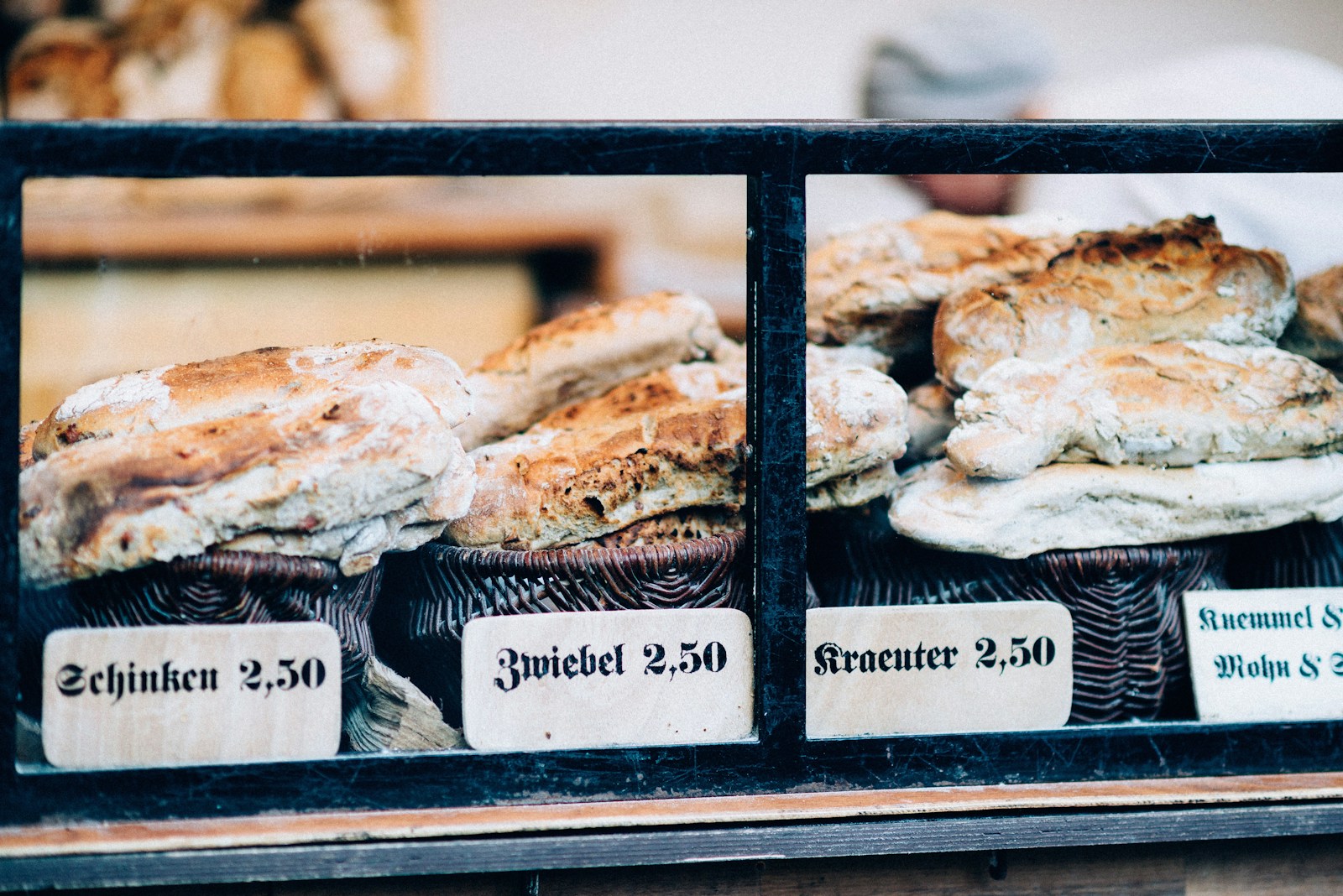
面包
miànbāo

bread
Although not a staple food in China, bread is gradually being enjoyed by more people, especially for breakfast.
Example sentences using: 面包
我爱吃妈妈做的面包。
Wǒ ài chī māmā zuò de miànbāo.

I love the bread that mom makes.
This phrase simply expresses the speaker's affection for the bread made by their mother. It's a good way to both practice the word 'bread' - 面包 and discuss your family.
我们全家早上都吃面包。
Wǒmen quánjiā zǎoshang dōu chī miànbāo.

Our whole family eats bread in the morning.
This sentence involves a common activity in many families, eating breakfast. 'Bread' - 面包 is used to describe what they eat in the morning.
我爸爸在面包店工作。
Wǒ bàba zài miànbāo diàn gōngzuò.

My dad works at a bakery.
This sentence is about the speaker's father's job at a bakery, where 'bread' - 面包 is often made and sold.
妹妹不喜欢吃面包。
Mèimei bù xǐhuān chī miànbāo.

My younger sister doesn't like eating bread.
It's a simple sentence about the speaker's younger sister's dislike for bread. 'Bread' - 面包 is used here to express someone's preference.
我们家的面包机很好用。
Wǒmen jiā de miànbāo jī hěn hǎo yòng.

Our family's bread machine is very useful.
In this sentence, 'bread' - 面包 is related to a commonly used kitchen appliance in homes, which is a bread machine.
我哥哥周末喜欢做面包。
Wǒ gēgē zhōumò xǐhuān zuò miànbāo.

My older brother likes to make bread on weekends.
This phrase is about the speaker's older brother's hobby making bread on weekends. Here bread - 面包 is associated with a leisure activity within the family context.
妈妈在超市买了一些面包。
Māmā zài chāoshì mǎi le yīxiē miànbāo.

Mom bought some bread at the supermarket.
The speaker in this phrase describes a common activity of buying bread at the supermarket performed by their mom. It demonstrates a routine family activity.
爸爸忘记吃早餐的面包了。
Bàba wàngjì chī zǎocān de miànbāo le.

Dad forgot to eat the bread for breakfast.
This sentence uses the word 'bread' - 面包 to describe an incident related to the father forgetting to eat his breakfast.
我给家里带了很多面包。
Wǒ gěi jiā lǐ dài le hěnduō miànbāo.

I brought a lot of bread for the family.
This phrase tells about the action of bringing bread home for the family, which is an action item that many can relate to.
爷爷奶奶经常吃午餐面包。
Yéyé nǎinai jīngcháng chī wǔcān miànbāo.

Grandpa and Grandma often eat bread for lunch.
This phrase talks about the regular activity of grandparents eating bread for lunch. It's another way to discuss family and meals.